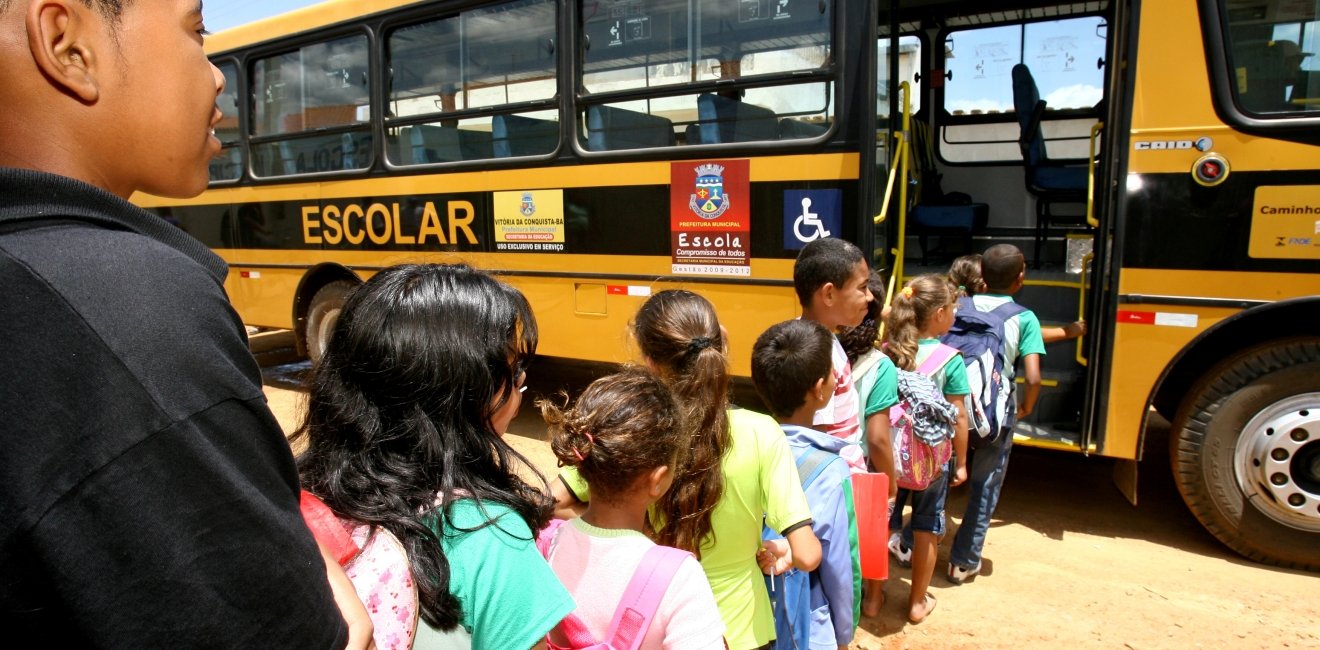
A blog of the Brazil Institute
Over $38 billion: that is the estimated cost of school dropouts in Brazil this year alone. Researchers from Insper, a prestigious business and economics university in Brazil, in conjunction with the Roberto Marinho Foundation, concluded that some 575,000 young Brazilians will fail to graduate high school by the end of the year—a number that exceeds the total population of some of the country's state capitals.
In their study, “Consequences of the Violation of the Right to Education,” the researchers estimated a lifetime loss of R$372,000 ($66,700) per student, accounting for factors such as lower employment prospects, decreased wage expectations, losses due to a reduced contribution to economic activity, decreased quality of life, and a higher probability of being involved in crime.
Furthermore, the study did not even account for the knock-on effects of the COVID-19 pandemic, meaning the number of dropouts and future losses could be even higher.
Another study, carried out by the National Youth Council (Conjuve), found that 28 percent of students between 15 and 29 years old are considering not returning to school once pandemic-related restrictions are fully lifted. Half said they are unlikely to apply for next year's National University Entrance Exam (Enem).
The Insper study assessed students born in 2002, who would be expected to complete high school this year. According to their research, an average teenager who completes basic schooling (which includes elementary, middle, and high school in Brazil) should be expected to accumulate an income of R$427,600 throughout their lifetime—for those who do not complete high school, this average drops to just R$268,500.
However, wealth was not the only factor assessed. Insper researcher Laura Müller Machado points out that those who do not complete high school are expected to have a lower quality of life and poorer health conditions. Society as a whole also stands to lose. Together, these factors represent an additional R$213,000 in losses per student, according to the researchers.
“Young people who complete basic education tend to encourage more constructive environments wherever they go, they have a greater capacity to generate innovation, inspire, and transmit knowledge. Besides, young people who don’t finish basic education are more likely to be involved in episodes of violence, whether as victims or perpetrators, as they usually live in more vulnerable places and are more exposed to conflict. This has a considerable cost for society,” she explains.
School Dropouts: A Neglected Population
According to the National Household Sample Survey (Pnad), carried out by the Brazilian Institute of Geography and Statistics (IBGE), 20.2 percent of the 50 million Brazilians between 14 and 29 years old have not finished a single stage of basic education. Among the reasons cited for this are disinterest in studying and a pressing need to leave school in order to work.
According to Roberto Rafael Dias da Silva, professor at the School of Humanities at the University of Vale do Rio dos Sinos (Unisinos) with a Ph.D. in Education, the data reflects a lack of investment—both in Brazil and Latin America as a whole—in diagnostic research and viable alternatives to keep kids in school.
“Cultural issues, the need to enter the labor market prematurely, and changes in the economy, for example, can explain the high rates of school dropouts. Most of the time, dropping out of school is not a matter of choice,” he says, adding that education systems, publishers, professional associations, and educational institutions themselves need to create permanent study centers on child and teenage education in Brazil.
Mr. da Silva also asserts that the outlook demands action from the government, such as a collective re-examination of educational purposes, programs for monitoring learning, and long-term policies. Meanwhile, Ms. Machado suggests that the government should be examining the good educational practices being deployed in Brazil—as the issue of school dropouts is not universal around the country.
Congresswoman Tabata Amaral, a leading voice in the public discourse on education, claims that Brazil's Education Ministry has been “adrift” for almost two years. “What do we as a society expect from Education ministers? That they would take their place as the coordinators of national educational efforts, as supporters of the most vulnerable education networks. But the Ministry decided to fold its arms instead. Of course, there are good examples from some states and municipalities, many inspiring teachers, but we know it takes more than that,” she says.
Civil Society's Role in Change
While it has become clear that the government holds significant responsibility in solving the problem of school dropouts in Brazil, that does not mean that civil society initiatives are not welcome. One example of a successful program is the NGO Instituto Futebol de Rua (Street Football Institute), which since 2006 has used sport, education, and culture as tools for social development in the southern city of Curitiba and other urban centers.
Jurema Christen, one of the organization’s teachers, says one of the goals of the initiative is to dissuade its young participants from leaving school, “We believe in transformative, effective, and integral education. This is only possible if we have a strong partnership with the families and schools where our youths study. In such a delicate moment as the COVID-19 pandemic, we must take a closer look at our students. We are in constant communication with families, to encourage these young people to continue studying, even in remote settings,” she says.
The institute also developed a free program for monitoring studies. Each week, families enrolled in the initiative receive phone calls from the NGO’s education professionals to assist students with any issues they may be having with schoolwork. “Our goal is to reduce school dropouts as much as possible,” says Ms. Christen.
Like the content? Subscribe to the Brazilian Report using the discount code BI-TBR20 to get 20 percent off any annual plan.

Author

Brazil Institute
The Brazil Institute—the only country-specific policy institution focused on Brazil in Washington—aims to deepen understanding of Brazil’s complex landscape and strengthen relations between Brazilian and US institutions across all sectors. Read more

Explore More in Brazil Builds
Browse Brazil Builds
They're Still Here: Brazil's unfinished reckoning with military impunity




